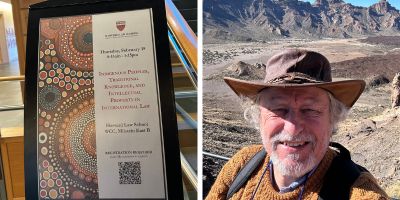Stanzas and Statutes: poetry in the School of Law

Over the last week Helen Mort, visited the School of Law, attending classes and running workshops with students, looking at similarities between the language of law and the language of poetry.
She has summarised her time in the blog below, as well as presenting two brand new poems written in response to her experiences in the School.
Stanzas and Statutes: poetry in the School of Law
In his famous essay ‘A Defence of Poetry’, Shelley argued that poets are “the unacknowledged legislators of the world.” But could legislation be the unacknowledged poetry of the world? That was one of the questions on my mind as I sat down on Monday morning - half-amused, half-daunted - in my first seminar in the School of Law.
As a poet and Douglas Caster Cultural Fellow in the School of English, I spend a lot of my time thinking about ambiguities in language, relying on connotation rather than denotation in what I write. How could I respond to the language of Land Law and Media Law? Do poets and lawyers share any common rhetorical ground? And would the students spot me a mile off?
The first seminar of the day with Stuart Bell looked at the law surrounding charities and donations.
To my surprise, I was immediately drawn to respond to one of the terms that dominated the discussion and began to think about resonances in the language:
Cy-prés
At first, I think the words are see and pray,
a shorthand for these mornings when we’re witness
to the early light, the sky a porcelain the sun can’t crack,
and strangers are kind on the first train out of town,
nothing goes wrong by 9am and I press my hands
together, hoping that it lasts
but Cy-prés is French, translates to nearness,
something like as close as possible,
and even though my mind’s already rattling
through the things I almost did,
and sentences I nearly said
and cities not-quite visited
I’m learning to listen properly,
to think of gifts and how they fail,
the body corporate, the terms of legacy,
all that’s initial, all that’s subsequent,
I write: I want to give a gift to you
but you do not exist any more.
In the afternoon, I attended a lecture on Media Law with Professor Ian Cram. I was fascinated to learn about privacy law and the factors that can influence whether a public figure or member of the general public has a reasonable claim to privacy. We considered cases from Naomi Campbell to John Terry, but it was the tragic story of Geoff Peck that caught my attention and prompted me to write something brief about the notion of ‘the public eye’:
Peck vs United Kingdom
A man walks down an Essex street.
A man walks down a street in August
with a kitchen knife.
A tiny, public eye is watching him.
It stares so hard, it widens,
and becomes the giant pupil of a TV screen.
Next, it is the flat, unblinking witness
of a daily newspaper
the nation hypnotised
by Brentwood High Street and its cradled threat
this stranger moving
with a weapon in his arms.
The public eye
is tracking him. It scans the future,
nobody can look away.
We see him multiplied - the man
left searching for a private doorway,
somewhere he can quietly make the cut.
Finally, on Thursday afternoon, I ran a creative writing workshop in the Liberty Building with students Helen and Sal, where we thought about terms used in law that might have different meanings in everyday speech and attempted a piece of writing that defined something by what it isn’t rather than what it is. It was an absolute pleasure to work with them and hear some of their creative responses.
We finished by considering the work of Nick Laird, a writer who first trained as a lawyer, and I’ve been returning to some of his words about what poetry does ever since:
“Poetry is a way of being alone without feeling alone. It allows you to experience another mind, I suppose. And it does that more fully than other art forms, I think. It doesn’t simply describe an experience, or a feeling, or a moment: it evokes it through, say, rhythm or tone or diction or metaphor. It creates a mood. A poem communicates before it is understood; it’s not a fully paraphrasable form, which distinguishes it from other forms of writing.”
The poems that were inspired by my visits to the School of Law this week can never paraphrase all the interesting things I experienced, but hopefully they can evoke a small part of them.




